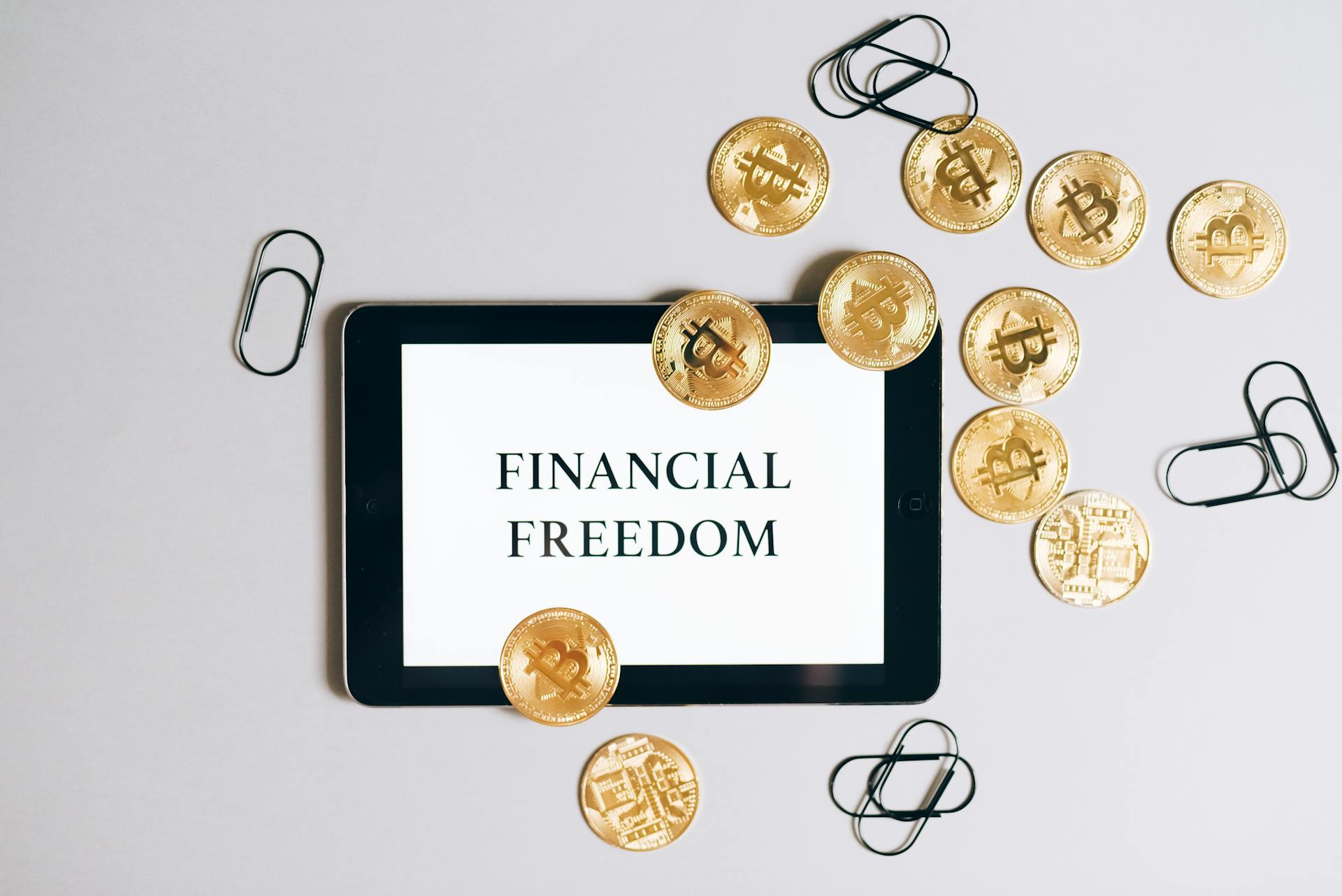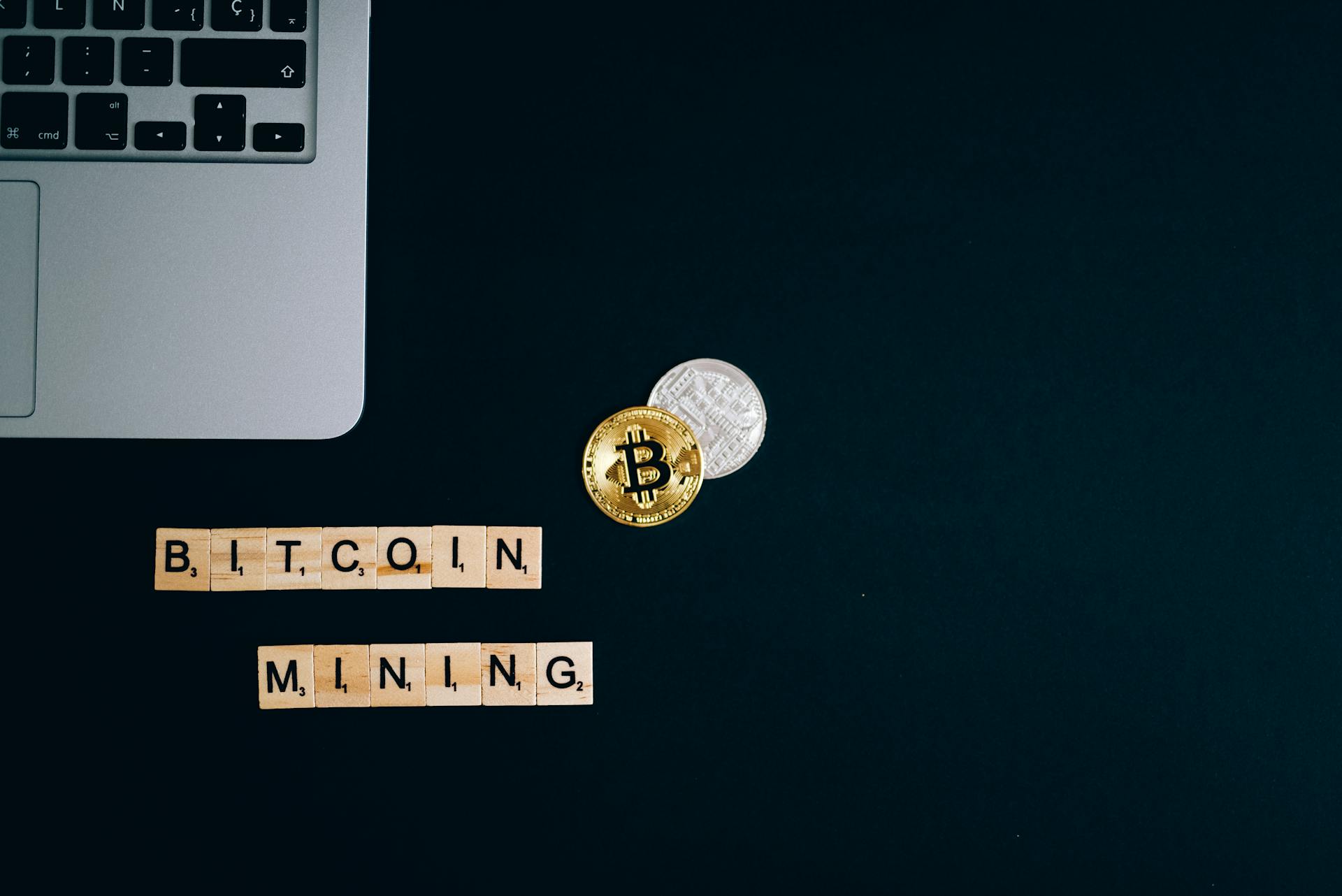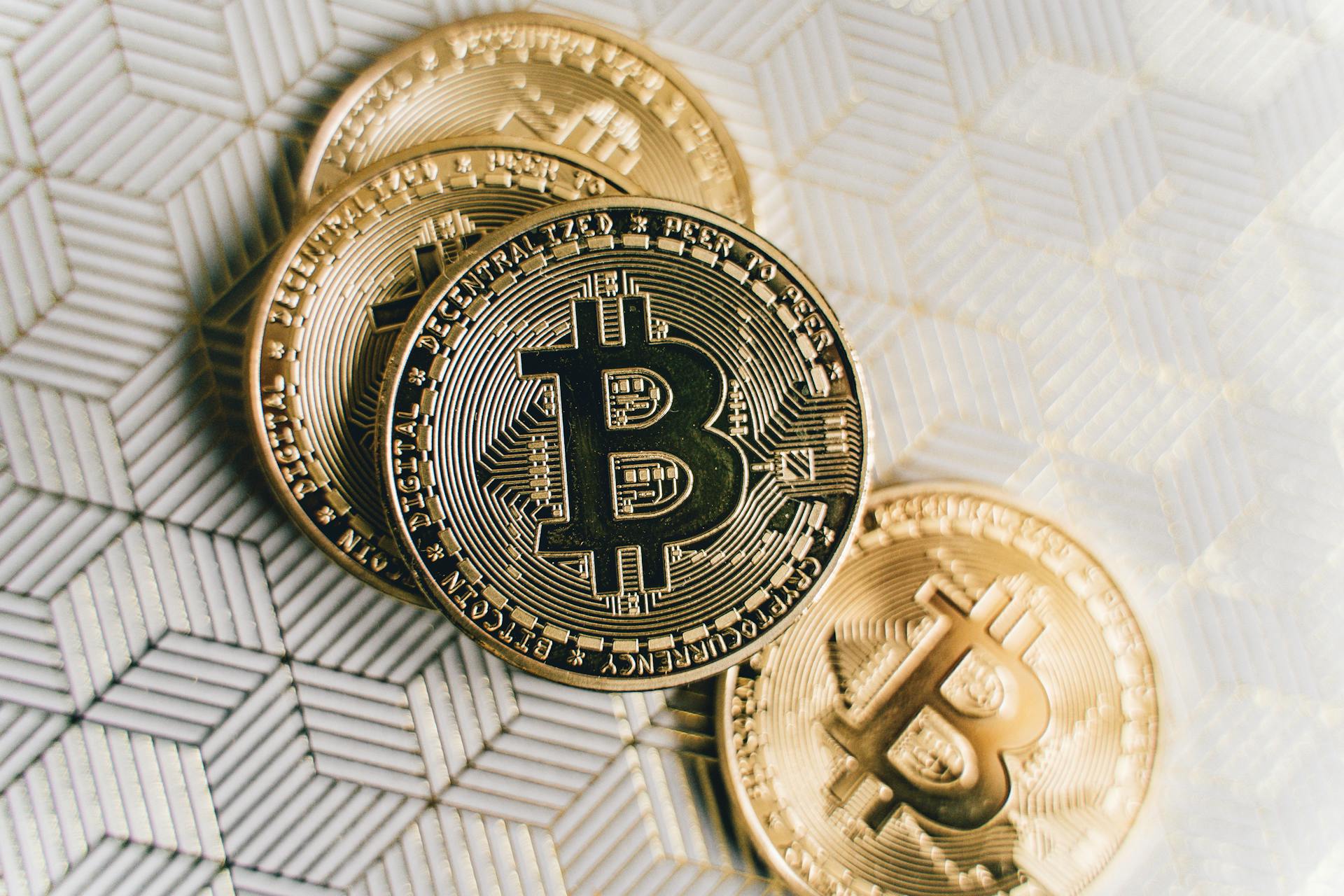
A Bitcoin wallet is a digital storage system that allows you to store, send, and receive Bitcoins.
Think of it like a virtual bank account, but instead of dollars, you're storing Bitcoins.
You need a Bitcoin wallet to securely store your Bitcoins, as they're not physically printed or minted like traditional currencies.
Without a wallet, you wouldn't be able to access your Bitcoins or use them for transactions.
What is a Bitcoin Wallet
A Bitcoin wallet is a device or program that stores your Bitcoin keys and allows you to access your coins. It contains an address and the private keys needed to sign Bitcoin transactions, making it essential for anyone looking to buy, sell, or trade Bitcoins.
The private key is the most critical component of a Bitcoin wallet, as anyone who knows it can control the coins associated with that address. This is a crucial fact to remember, as it highlights the importance of keeping your private key safe and secure.
See what others are reading: Private Crypto Wallet
There are several different types of Bitcoin wallets, each with its own features and levels of security. This means you can choose a wallet that suits your needs, whether you're a beginner or an experienced trader.
A Bitcoin wallet does not physically hold Bitcoins, it stores the public and private keys required to buy Bitcoins and provide digital signatures that authorise each transaction. This is a common misconception, but it's essential to understand how Bitcoin wallets work.
Here are some common types of Bitcoin wallets:
- Physical devices
- Software wallets
- Paper wallets
The type of wallet you choose will depend entirely on your individual trading needs.
Security and Risks
Crypto wallet security is crucial, as hackers often target high-value cryptocurrencies. Encrypting your wallet with a strong password and using two-factor authentication for exchanges can help protect your funds.
Malware disguised as wallets is a significant concern, so it's essential to research carefully before choosing a wallet. A safe wallet should not deny you access to your crypto due to a custodian's financial issues.
To add an extra layer of security, consider using a multi-signature wallet, which requires two or more private key signatures to authorize transactions. This can prevent the misuse of funds and fraud, making it a good option for hedge funds, exchanges, and corporations.
A cold wallet, which remains offline and disconnected from the internet, can also mitigate the risk of crypto wallet hacking. This physical device, such as a pen drive, is used as a secure storage medium for transferring money from a hot wallet.
Security Features
To keep your cryptocurrencies safe, you need to focus on wallet security. Encrypt your wallet with a strong password and use two-factor authentication for exchanges.
Research carefully before choosing a wallet, as some are disguised as malware. This has happened to many people, and it's a serious issue.
The safest crypto wallet is one that has no connection to the internet or a device with internet access. This means it's a cold wallet, which is the most secure option.
A hot wallet, on the other hand, is connected to the internet and can be accessed remotely. While convenient, it's also more vulnerable to cyber attacks.
If you're looking for an extra layer of security, consider a multi-signature wallet. This type of wallet requires two or more private key signatures to authorize transactions.
Here are some benefits of multi-signature wallets:
- An individual can prevent losing access to the entire wallet if one key is lost.
- Multisig wallets can prevent the misuse of funds and fraud, making them a good option for hedge funds, exchanges, and corporations.
By following these security tips, you can protect your cryptocurrencies from hackers and cyber attacks. Remember, security is a top priority when it comes to crypto transactions.
A different take: Crypto Wallet Security
Concerns and Risks
A wallet can have known or unknown vulnerabilities, making it susceptible to hacking.
Supply chain attacks or side-channel attacks can introduce vulnerabilities, and in extreme cases, even a computer not connected to a network can be hacked.
To mitigate the risk of crypto wallet hacking, consider using a cold wallet, which remains offline and disconnected from the internet.
A cold wallet is a physical device, such as a pen drive, used as a secure storage medium for transferring money from a hot wallet.
Here are some types of vulnerabilities to be aware of:
It's essential to be aware of these risks to protect your digital assets.
How Bitcoin Wallets Work
A Bitcoin wallet is essentially a digital storage system that holds the key to your Bitcoin, not the Bitcoin itself. This key is a set of specific codes that verify your wallet address.
The actual Bitcoin is stored on a public blockchain network.
To perform transactions, you need to use your private key to verify your wallet address.
The speed and security of your transactions often depend on the kind of wallet you have.
Types of Bitcoin Wallets
There are two main types of wallets: custodial and non-custodial. Custodial wallets are hosted by a third party that stores your keys for you, while non-custodial wallets give you full control over your funds and private keys.
Hot wallets are connected to the internet, making them more accessible but also more vulnerable to hackers. Examples of hot wallets include web-based wallets, mobile wallets, desktop wallets, and software wallets.
Cold wallets, on the other hand, are kept offline and are generally considered more secure. Hardware wallets, such as those made by Ledger and Trezor, are a type of cold wallet that store your private keys and allow you to sign transactions without exposing your keys to the internet.
Worth a look: Hot Wallet
Hot wallets are convenient for day-to-day trading, but for long-term storage, cold wallets are a better option. You can have a non-custodial software hot wallet, a non-custodial hardware cold or hot wallet, or a custodial hardware cold wallet.
Here's a breakdown of the types of wallets:
Non-custodial wallets require you to store your seed phrase, which can be used to restore your wallet if it's lost or compromised. It's essential to keep this phrase in a secure location, such as a safe or a secure digital storage service.
Choosing a Bitcoin Wallet
There are several types of Bitcoin wallets, including software, hardware, and paper wallets. Each type has its own unique features and benefits.
Software wallets are convenient and easy to use, but they're also vulnerable to hacking and malware attacks. They're best for small to medium-sized transactions.
Hardware wallets, on the other hand, offer top-notch security and are a good choice for storing large amounts of Bitcoin. They're like a safe for your digital currency.
See what others are reading: Hardware Wallet vs Software Wallet
Paper wallets provide a simple and offline way to store Bitcoin, but they're not as secure as hardware wallets. They're a good option for small transactions or as a backup.
Ultimately, the best Bitcoin wallet for you will depend on your specific needs and preferences. Consider your level of technical expertise, the amount of Bitcoin you're storing, and your desired level of security.
A fresh viewpoint: Goyard Wallets
Frequently Asked Questions
Is Cash App a Bitcoin wallet?
Yes, Cash App is a digital wallet for Bitcoin, allowing you to store, buy, sell, and transfer your cryptocurrency securely. With Cash App, you can access your Bitcoin balance instantly and easily manage your digital assets.
Featured Images: pexels.com

